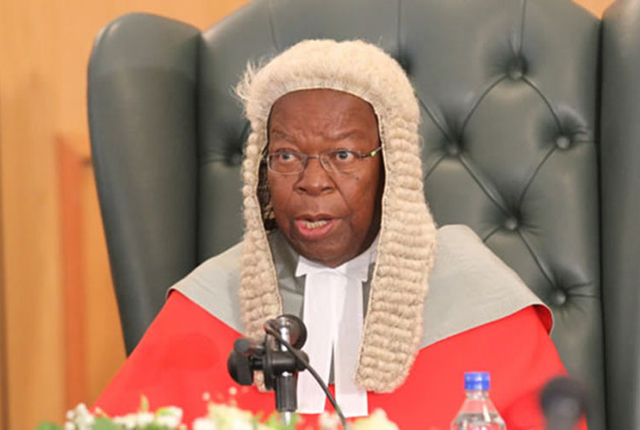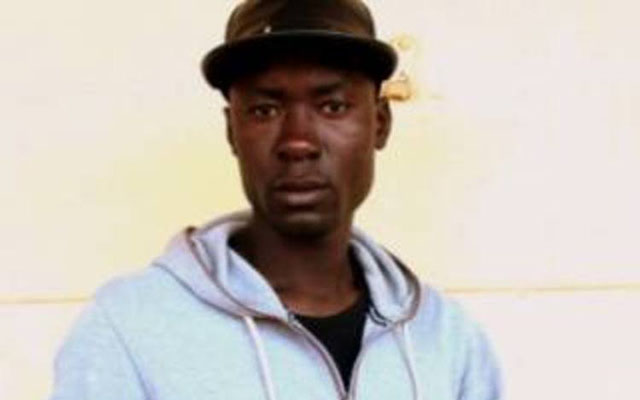Chidyausiku: Eulogy from the Bar!

Sharon Hofisi and Dorcas Chitiyo Legal Matters
In three days’ time, retired Chief Justice (CJ) Godfrey Chidyausiku, receives a deserving send-off at the National Heroes Acre. He leaves a rich legacy — all those who make immense contributions to national development are heroes in their own right.
His contributions to the history of Zimbabwe are already in the national sphere through detailed portrayals; firstly, by Vice President Emmerson Mnangagwa, and then, by former Minister of Justice, and retired Judge, Advocate Simbi Mubako. They include constitutional negotiations; self-rule; local government development, law reform under the General Laws Amendment, and land reform.
Surely the history of Zimbabwe’s constitutionalism starts with names of legal experts such as Emmerson Mnangagwa, Edison Zvobgo, Godfrey Chidyausiku, Robert Mugabe and others. The Lancaster House Constitution — that ceasefire charter — a mirror of our nation’s soul from 1979 to 2013 — was a product of negotiations that included the now departed judge.
And now his untimely death. This panegyric emanates from the shocking and sad news of the passing on of a firm judge who had just retired, after having lived a fulfilling life with the law.
He was an eminent lawyer, who had also practised at the Bar. He had been in Government — as the Minister of Local Government; Deputy Minister of Justice and the Chief Advisor to Government — the Attorney-General.
Before his ascendency to the office of the CJ, his view on land reform can be gleaned from his dissenting judgment in the Commercial Farmers Union case. CJ Chidyausiku’s views on the Amendment relating to land — Amendment No. 17 — cannot be divorced from the history of Zimbabwe.
Because of the existence of a Constitutional Amendment, his interpretation fits into a category of orthodox judges, who interpret the Constitution historically. This is evident from a reading of the judgments by Thomas Madison of the United States. The Amendment made land acquisition constitutional.
His influence on the Judiciary was stupendous. A year can be spent writing on his roles as a Judge President of the High Court, a judge of the Supreme and Constitutional Court and Chief Justice. His role on the independence of the Judiciary strikes any lawyer.
As a judge of the Supreme Court, his dissenting judgment in the Commercial Farmers Union Case is worth mentioning in this eulogy. The jurisprudence of a country is shaped when judges adopt innovative interpretations of the Constitution. The Constitution is a living document, whose spirit must breathe ad infinitum.
After his dissenting judgment, the majority decision prevailed. Under the rule of the law doctrine, the Government was ordered to craft a land reform. In effect, the majority decision largely had the same effect with the sentiments of CJ Chidyausiku — there was an order that was suspended for a specific period.
CJ Gubbay ordered the Government to come up with a land reform programme. This fitted under the rule of law concept. When he retired, CJ Chidyausiku succeeded him. Government went to court with a Land Reform Programme.
To that extent, the Government had complied with the order of the Supreme Court. CJ Chidyausiku, made a finding in this regard. Again this takes us to the rule of law — the land reform programme was made pursuant to a law — the Land Acquisition Act.
On the independence of the Judiciary Service Commission (JSC), he also asserted the independence by allowing members to respect court orders. A CJ in most jurisdictions is usually associated with a government but is fiercely independent.
This is not withstanding that as the CJ, he was only “a stone’s throw” away from Government-under the separation of powers doctrine where the CJ is both a Government functionary, always called to maintain checks and balances on the other institutions such as executive excesses or legislative omissions.
Talk about the independent assessment by Namibian permanent secretary for the Judiciary, Mrs Rolanda Lucretia Van Wyk who hailed Zimbabwe for effectively running an independent judicial system — CJ Chidyausiku cannot be left out.
The assessment was a product of a benchmarking tour to learn the best practices from the Judicial Services Commission, then headed by the now departed CJ.
Under his leadership, the JSC’s independence model courted the Mozambican CJ especially on mechanisms of performance measurement in both the magistrates’ courts and the superior courts.
Through his leadership, the JSC became fully independent in 2010, being weaned from the Ministry of Justice, Legal and Parliamentary Affairs.
Under his leadership, he opened Legal Years. With the judicial clock legally ticking, he had occasion to reprimand his peers at the Bench. He also allowed his peers to respond to his concerns through a peer review engagement exercise.
The height of judicial independence can be seen in the Romeo Taombera Zibani case where the JSC was interdicted by the High Court from conducting interviews to appoint the next CJ after Chidyausiku CJ had reached the constitutionally mandatory age of 70.
The public interviews were conducted by the JSC under CJ Chidyausiku’s leadership. The JSC appealed to the Supreme Court and the interdict was reversed. The JSC asserted its independence as envisaged by the Constitution. As in all relay teams, Chidyausiku ran his race, and passed on the stick to his long time deputy, the now CJ, Luke Malaba.
He also exercised his constitutional powers by appointing retired Judge, Justice Vernanda Ziyambi. She had sat on the Supreme Court and Constitutional Court benches, was the first female judge of the Supreme Court and shaped the quality of judicial reasoning in Zimbabwe.
Mutare and Masvingo will never forget his legacy. He set the stage for efficient administration and access to justice. Considering the rigmarole of both civil and criminal litigation, or the impact of both strategic and public interest litigation, the two cities now have High Courts.
The entire legal fraternity has lost a learned colleague. The judiciary has lost a sage. The Government has lost a constitutional politician.
On constitutional rights, and the rule of law, it’s a pick and choose scenario. There are judgments some would castigate viciously, as well as those some would use fervently. By way of example, the Jealousy Mawarire v President Mugabe, 2013, cannot escape scrutiny.
The Constitution of Zimbabwe, 2013, is a transformative and progressive Constitution.
It makes different rights justiciable. Section 67 for instance protects political rights. These rights include the right to vote and right to free, fair and regular elections.
Jealousy Mawarire went to the Constitutional Court to assert his right to vote for a leader of his choice. In its first Constitutional judgment in 2013, the Concourt invented a “hands-dripping-with-blood” doctrine.
An election date was proclaimed. Political arrangements under the Government of National Unity (GNU) — created by the interparty Agreement, the Global Political Agreement, ended with zanu-pf prevailing in that election.
The life of the GNU — first brokered by Former SA President and a now University Vice Chancellor, Thabo Mbeki and then by the incumbent SA President, Jacob Zuma — was ended by a constitutional litigation, presided over by CJ Chidyausiku.
Litigants and lawyers can now approach the Concourt, or any other court that can sit as a Concourt, by thinking outside the facts of the Mawarire case.
Through judicial precedent, they can use the impact of the Chidyausiku “hands-dripping-with-blood” doctrine to have their rights protected; and to attack doctrines such as the Constitutional avoidance doctrine that was recently adopted by the Concourt in the Chawira judgment — where death row inmates were shockingly referred to as “condemned”.
On lawyers, the former CJ wanted to have the Bar divided into advocates and attorneys. Zimbabwe would have reverted to the pre-independence days where there was fission of the profession. Because fusion was meant to correct historical imbalances, fission would have appeared to be a reversal of the gains of independence.
Undeniably, his concerns on the quality of pleadings in the superior courts of law cannot be ignored. It is not artificial for any judge to ordinarily regard all lawyers as endowed with the gift of the legal gab. A CJ is entitled to speak on the expectations of a judge. Good lawyers know the law, but the best lawyers know the judge — it has been said.
The roll of honour has been made — a national hero he has been declared — it is his to take. Those are the fruits of his own labour. He fought the good fight. One is reminded of that AU Anthem. “Let us unite and sing together. To uphold the bonds that frame our destiny. Let us dedicate ourselves to fight together. For lasting peace and justice on earth”.










Comments